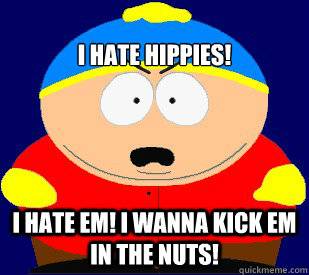- Apr 6, 2014
- 1,746
- 160
- 130
Go to federal prison just for smoking a plant. Why do you guys hate hippies? I personally think the world would be a better place with more of them. So if I want to be a true American I have to fear this entity called God and I have to eat fried food?


